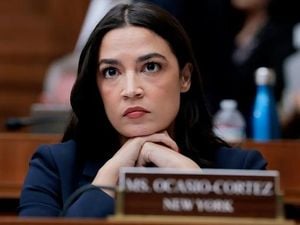Mayor Eric Adams finds himself at the center of a political and public safety storm in New York City, as he faces mounting legal battles over campaign finance and grapples with the city’s ongoing crime challenges. On August 18, 2025, Adams announced a significant expansion of the NYPD’s Quality of Life Division across Staten Island, just a day after a fatal shooting in Crown Heights, Brooklyn, left 14 victims, including three fatalities, according to reporting by Fox News Digital and Staten Island Advance. The move is part of a broader push to address persistent public safety and quality-of-life concerns, even as Adams contends with a high-stakes legal showdown over his reelection campaign funding.
The mayor’s legal troubles stem from the New York City Campaign Finance Board’s (CFB) ongoing refusal to release nearly $5 million in public matching funds for his reelection effort. The board’s initial denial, which began in late 2024, cited a federal corruption indictment against Adams. Although that indictment was dropped in the spring of 2025 by President Donald Trump’s Department of Justice, the CFB has continued to withhold funds, arguing that Adams’ campaign has failed to provide adequate documentation and has submitted incomplete and misleading information regarding suspected straw donations. The board reaffirmed its position on August 6, 2025, stating it still believes the mayor has violated the law and pointing to an independent, ongoing investigation.
Adams’ campaign, frustrated by the board’s persistence, filed a new lawsuit in Brooklyn Federal Court on August 15, 2025, seeking a judicial order to compel the release of the funds. In the suit, Adams’ attorneys accused the CFB of exhibiting a “deplorable and anti-democratic bias” against the campaign, writing, “[The board] has shown a deplorable and anti-democratic bias against the Adams Campaign and has done all it can to deprive the Adams Campaign of public funds intended to amplify political speech and civic debate for all candidates, including those the CFB does not favor, and for the benefit of all New Yorkers.”
The Adams team insists that it has responded to all outstanding documentation requests, except for records currently under a protective order related to the now-dismissed criminal case. The campaign’s legal filing argues that the CFB’s continued stonewalling is unjust and that the withheld funds—which have ballooned from the original $3 million to nearly $5 million—are critical for ensuring a fair and open reelection contest. The CFB, for its part, has declined to comment on the pending litigation, but its previous statements and rulings suggest a deep skepticism about the completeness and accuracy of the Adams campaign’s disclosures.
This latest legal maneuver follows a similar lawsuit filed by Adams in May 2025, shortly after the corruption indictment was quashed. In that earlier case, a judge sided with the CFB on the grounds that Adams’ team had not provided adequate documentation, but also ruled that the board could not deny matching funds solely because of the indictment, given its dismissal by Trump’s DOJ. The current suit, therefore, zeroes in on the documentation dispute and the campaign’s assertion that it has complied with all legitimate requests, aside from those bound by court order.
Meanwhile, as Adams wages this legal fight, he continues to assert his leadership on public safety. The expansion of the NYPD’s Quality of Life Division—known as Q-Teams—was launched on April 14, 2025, and is designed to tackle issues such as homeless encampments, outdoor drug use, and noise complaints. According to Adams and NYPD Commissioner Jessica Tisch, these teams have already made “significant improvements to New Yorkers’ quality-of-life concerns.”
Adams’ announcement on Staten Island came amid heightened public anxiety following the Crown Heights shooting and a recent Midtown Manhattan incident in which four people were killed. Despite these tragedies, Adams points to what he describes as “record-low shootings and murders” during the first five months of the year, with May being the “safest in recorded history for shootings and murders,” as reported by the NYPD. “As we indicated over and over again, we got this,” Adams told Fox News Digital, emphasizing New York City’s capacity to manage its own crime challenges without federal intervention. “Our numbers speak for themselves.”
Adams was quick to distance the city’s public safety strategy from President Trump’s recent federal crime crackdown in Washington, D.C., where the federal government moved to take control of the Metropolitan Police Department and deployed National Guard troops and federal agents to “beautify” the capital. “We are an example of what all cities can do, but we’re not responding to some of the things that we’re reading about this,” Adams said, making it clear that New York’s approach is homegrown and independent. “Our numbers are clear. We’re willing to share what we’re doing successfully here with other cities, and we’ve done that before.”
Still, Adams did acknowledge the need for federal assistance in one key area: the flow of illegal guns into New York City. “We do need assistance on the federal level to deal with the flow of illegal guns onto our streets,” Adams admitted, referencing the Midtown shooting in which a suspect traveled across the country with an illegal firearm. “When a person who drives across the country and creates havoc with an illegal gun, it really hurts these inner cities.”
The mayor’s Staten Island event wasn’t without its share of local discontent. Several residents confronted Adams with complaints about poor living conditions, including uncleaned floors, uncollected garbage, malfunctioning elevators, and a lack of hot water in their buildings. Adams encouraged the residents to form a tenants’ association and promised to arrange a meeting to discuss their concerns, signaling his willingness to engage directly with constituents on the city’s persistent housing and infrastructure woes.
As the city heads into a new election season, Adams’ dual battles—fighting for campaign funding and addressing public safety—highlight the complex interplay between politics, governance, and the lived experiences of New Yorkers. With nearly $5 million in public funds at stake and community anxieties running high, the outcome of these struggles will shape not only Adams’ political future but also the city’s broader trajectory in the months ahead.
For now, New Yorkers are watching closely as their mayor seeks both to clear his name in the courts and to deliver on his promises in the streets, hoping that leadership and accountability will ultimately prevail.




